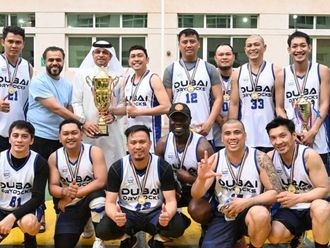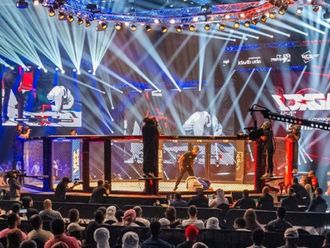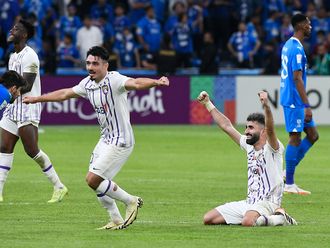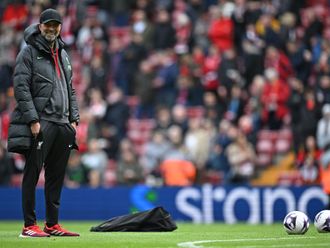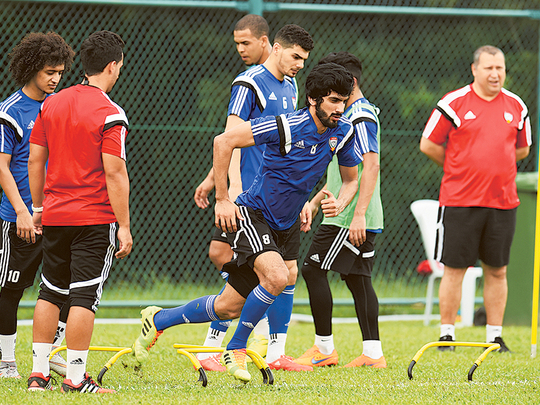
Kuala Lumpur: The UAE get their Fifa 2018 World Cup qualification bid underway against Timor-Leste at the Shah Alam Stadium here in Malaysia on Tuesday, and after the nightmare of three years ago, confidence couldn’t be higher.
In their last attempt to reach football’s biggest event — held in Brazil last year — the UAE finished bottom of their third qualifying round pool with just one win from six matches.
Slovenian coach Srecko Katanec was sacked just two defeats into the campaign and replaced by caretaker coach Abdullah Misfer, who couldn’t stem the tide. It followed a woeful 2011 Asian Cup campaign in Qatar, where the Whites crashed out in the group stages without a win.
But, out of the shadows of that disaster, emerged coach Mahdi Ali and his under-23 squad. Their successful qualification to a first ever Olympic Games at London 2012 helped temper the frustrations of fans, and despite — as expected — crashing out in the group stages of that tournament, where they faced hosts Great Britain, Uruguay and Senegal, Ali’s young guns, led by the midfield wizardry of Al Ain’s Omar Abdul Rahman, had done enough to prove there was light at the end of the tunnel.
Ali was promoted to UAE senior team coach, the first Emirati to be bestowed with the honour in a full-time capacity, and he immediately set about drafting his trusted under-23s — many of whom he had coached since they were 15 — into the squad.
The results were impeccable. Not only did they go on a record run of 20 games unbeaten from September 2012 to May 2014, but they also won their second Gulf Cup title in Bahrain in 2013 and qualified for the 2015 Asian Cup in Australia, where they eventually finished third after knocking defending champions Japan out on penalties in the quarter-finals. It was their best finish in the competition since their tournament-best runners-up spot on home soil in 1996.
The lack of goals that Katanec had cited as a reason for failure three years ago is now resolved. Al Jazira striker Ali Mabkhout won back-to-back golden boots with five goals apiece in both November’s 2014 Gulf Cup in Saudi Arabia — where the UAE had also finished third — and January’s Asian Cup.
The 24-year-old, who set a record for the fastest goal in Asian Cup history after 14 seconds against Bahrain, now has 22 goals in 33 appearances for his national team. And he has just finished his best domestic season, where he became the league’s highest scoring Emirati with 16 goals in 24 appearances.
There is now real hope that the UAE can reach only their second World Cup. They made their debut in Italia 90, a tournament Ali missed out on through injury as a player, but could now make up for as a manager. They didn’t get out of the group in that World Cup.
Now, having been drawn in the second round of a revised qualification process with Timor-Leste, Malaysia, Palestine and Saudi Arabia, the Whites will fancy their chances of progressing to the third round.
However, only the top teams and four best runners-up from the eight pools progress to the next phase. Therefore the UAE’s chances will hinge on their double header with Saudi Arabia, the team they lost against 3-2 in the semi-finals of the 2014 Gulf Cup in Riyadh, and have traditionally struggled with in terms of regional football dominance.
One thing in the UAE’s favour, however, is Asian Cup form and the knowledge that, while they finished third, Saudi Arabia couldn’t even get out of their group.
If they successfully reach the third and final round — where the top two teams from two groups of six qualify for the 2018 World Cup in Russia, and the two third-placed teams face intercontinental play-offs — another factor could come into play.
The one complaint about the UAE national team is that, despite their recent resurgence under Ali, none of the players ply their trade outside their home country. While that may have helped their togetherness, their relative lack of experience could come into question when it comes to requiring sustained performance over the very best sides in Asia, not least the world.



